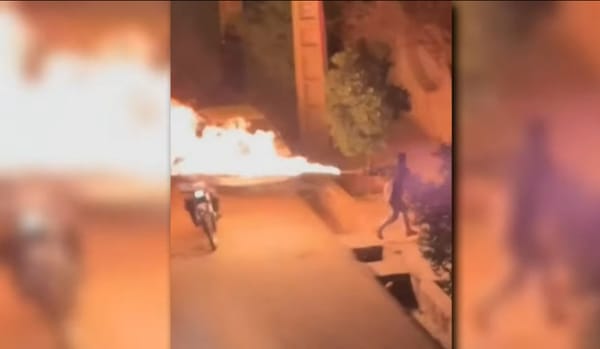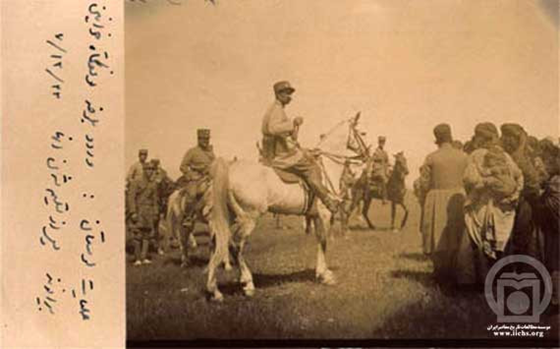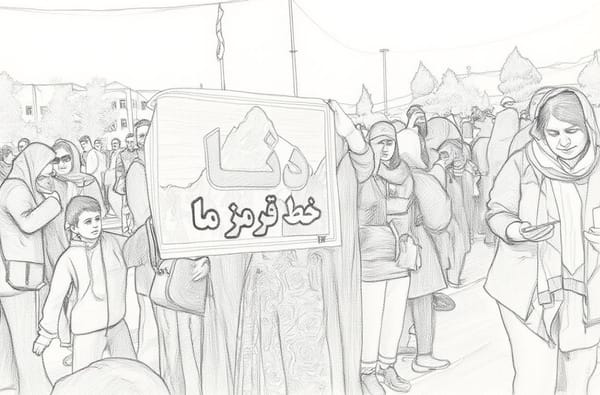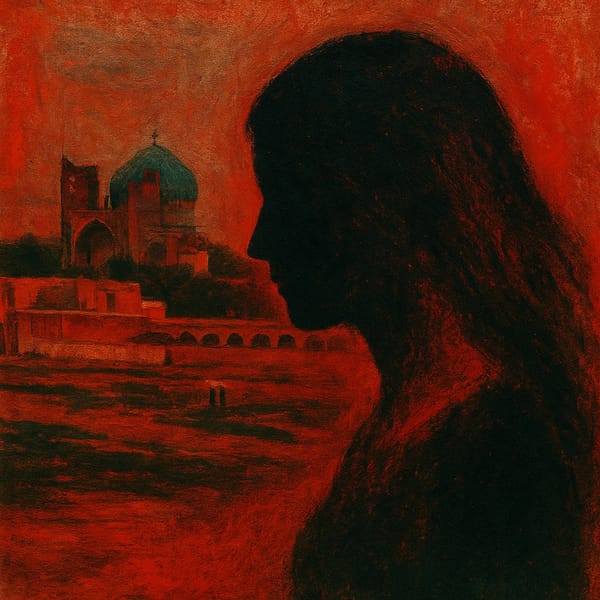The Current Deadlock of Politics in Iran
What steps in domestic politics could keep us from sliding into an external military aggression, a coup, civil war, and economic–environmental ruin?

18 August 2025
The more one thinks about today’s nationwide crisis and the stalemate in domestic politics, the clearer the conclusion: to avert state collapse, the Islamic Republic must be shut down, or, if need be, broken apart. This isn’t a fresh revelation. Every failed cycle of “reformism” over the past decades has only confirmed it. But the twelve-day Iran–Israel war this past June threw our pre-catastrophic condition into even sharper relief.
What steps in domestic politics could keep us from sliding into an external military aggression, a coup, civil war, and economic–environmental ruin? The radical left’s answer is a popular revolution. Yet the same radicalism reminds us that objective conditions alone don’t suffice; subjective conditions are also necessary: mass organization, leadership, the mobilization of fresh revolutionary forces, and a coordinated drive toward the regime’s final overthrow. In Iran’s current circumstances, that possibility has been denied us. Absent a revolutionary event, only two paths remain: root-and-branch reform, or right-wing radicalism (barandazi, overthrow).
Do the reformist forces inside Iran retain any credibility or legitimacy? Let’s glance at the latest official statement by the Reform Front of Iran.
The statement issued yesterday, 17 August, by the Reform Front inches a bit beyond the usual eyedropper reforms. It demands the release of all political prisoners (not merely lifting the house arrest of Mir-Hossein Mousavi and his wife, Zahra Rahnavard), freedom to criticize, an end to censorship, and suspension of nuclear enrichment. It calls for “reforming the structure of governance” and a return to popular sovereignty via free elections and the abolition of vetting oversight, i.e., the Guardian Council’s power to supervise and disqualify candidates under Article 99 of the Constitution, and its power to interpret the Constitution by a three-quarters vote under Article 98. In foreign policy, it proposes ending Iran’s self-inflicted tensions and isolation.
Language and Time
Two basic problems render such statements sterile. First is the reformists’ obsequious idiom: two-faced sentences that try to have it both ways, wrapped in ta’arof and expedient fictions. That register no longer works; it repels the reader on contact. Example: “Israel’s criminal aggression and the imposition of a 12-day war on Iran despite a decisive response [lie: the regime was caught off guard; its military chiefs and nuclear scientists were mowed down; Fordow was obliterated, etc.] and the revealed deterrent capability and defensive power of the nation’s armed forces [polite fiction: the country’s airspace was left undefended to Israeli jets] has transformed the face of our national security in the region and the world. [equivocation: ‘transformed the face’ into what? It refuses to say the proxies and ‘strategic depth’ evaporated; that we lost].”
You see the trick? One long sentence with the structure: “despite this and that [flattery and self-praise], the face of our security was transformed,” a velvet shroud over defeat.
They want to flag the risk of Israel’s next strike, but instead of stating plainly that responsibility for any such attack lies with the Supreme Leader, Ali Khamenei, and the ruling establishment — who even now refuse to declare peace with the United States and Israel and to renounce enrichment — they pirouette: “preventing the scenario of legitimizing a future war against Iran” is not an electoral matter but a “national-security urgency.” As clear as mud. The Reform Front offers eleven such “remedies,” all in the same fog.
Why, in objective crisis conditions, do the language and the form of proposed remedies matter so much? Because the language must be direct, radical, even aggressive. Consider this: in its first two hours on YouTube, Pouria Zeraati’s latest program on the Iran International network pulled in two hundred thousand views. Imagine how many millions tuned in via satellite. By comparison, Morad Veisi’s relatively popular commentary on the same channel --- pushing the same aims, selling the same propaganda --- rarely passes a few thousand views, even though Veisi makes arguments, brings evidence, proceeds methodically, and generally avoids abuse. Zeraati operates outside professional journalistic norms; he speaks in the second tongue of Netanyahu and Smotrich, the language of the victor. He says (to the Supreme Leader): “Old man, wherever you hide we’ll drag you from your hole and grind you to powder; every one of your commanders sits under the crosshairs of our bombs.” Note what’s operative here: the language of power and superiority is the hegemonic language. It pulls people toward itself like a magnet. The defenseless and the powerless want to stand beside, or on board, the ship of power. It emboldens them. In this moment, that is the idiom of the right-wing overthrowists (so-called barandazn).
The statement’s second problem is a failure to grasp time. In politics, time isn’t calendrical. Stagnation, crisis, and an objectively revolutionary situation each run on different clocks. You cannot prescribe remedies as if these actors had time to burn. Israel’s assault failed in installing Crown Prince Reza Pahlavi; one might conclude, then, that reformists and “moderates” now hold a stronger hand to force fundamental change from within. The trump card at this perilous moment sits with these moderates: the so-called Axis of Resistance has been dealt a heavy blow and lost its balance; for sheer survival, it must hand the tiller to domestic forces calling for a “paradigm shift in governance.” Those forces can pitch to Donald Trump that regime change from within, managed by them, costs less and pays more than an Israeli invasion.
But the window for the reformists will slam shut fast. There isn’t much time.
Therefore, when the Reform Front says “free political prisoners,” it must insist: now, visible to all, to persuade the public, not one second’s delay. Shut down the nuclear program today, not tomorrow. Vacate death sentences now. Lift the digital censorship now. A genuinely pre-catastrophic situation leaves no time for courtesies or factional ping-pong. If you say free elections, referendum, a change of ruler and rule, this isn’t for three years hence; it must be tomorrow. The right’s radical discourse has an advantage: after a coup or a toppling, there is no going back, as the Persian saying goes, death once, mourning once. The moderation discourse, by contrast, carries no guarantees. Even if it yields results here and there, nothing prevents a relapse into old criminalities. People see it for what it is: a survival tactic. Reform buys the regime time. A true paradigm shift in governance must be irreversible.
And of course, the reformists have neither the language nor a sense of time, because their hands draw from the same pillage as the regime’s. I won’t belabor how people now recoil even from their very look; on that score, there’s no daylight between the conservative Islamist Paidari Front and the Reform Front --- from Hassan Rouhani’s turban to the manicured stubble of Masoud Pezeshkian and Abbas Araghchi, from Javad Zarif’s ghastly grin to the rigid kerchiefs of the government’s female spokespeople.
In the public mind, the “legitimacy of a future war against Iran”, the statement’s phrase, will be determined by these very factors. /// A.K.



